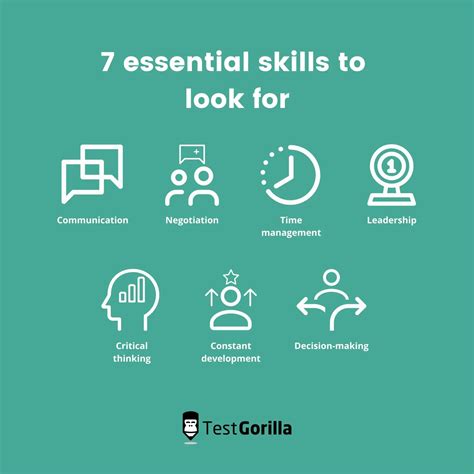In today's fast-paced and ever-evolving tech industry, marketers need to possess a unique blend of skills to stay ahead of the curve. As technology continues to advance and consumer behavior shifts, tech marketers must adapt and develop new skills to remain effective. Here are 7 essential skills for a tech marketer to succeed in this dynamic landscape.
Marketing is an art and a science. With the abundance of data available, marketers must be able to collect, analyze, and interpret data to make informed decisions. This involves understanding metrics such as website traffic, engagement rates, conversion rates, and return on investment (ROI). A tech marketer must be able to extract insights from data and use them to optimize marketing campaigns and improve overall performance.

Content Creation and Storytelling
Content is king in the tech industry. Marketers need to be able to craft compelling stories that resonate with their target audience. This involves creating high-quality content that educates, entertains, and engages. A tech marketer must be able to develop a content strategy that aligns with their brand's goals and objectives, and creates a consistent tone and voice across all channels.

Understanding of SEO Principles
Search engine optimization (SEO) is critical for tech marketers. With the majority of consumers using search engines to find products and services, a tech marketer must understand how to optimize their content to rank higher in search engine results pages (SERPs). This involves keyword research, on-page optimization, link building, and technical SEO.

Digital Advertising and Paid Media
Digital advertising is a crucial component of any tech marketing strategy. A tech marketer must be able to develop and execute paid media campaigns across various channels, including Google Ads, Facebook Ads, LinkedIn Ads, and more. This involves understanding targeting options, ad formats, bidding strategies, and campaign optimization.

Understanding of Social Media Platforms
Social media is a vital channel for tech marketers. A tech marketer must be able to develop and execute social media strategies that align with their brand's goals and objectives. This involves understanding the nuances of each social media platform, including Facebook, Twitter, LinkedIn, Instagram, and more.

Email Marketing and Automation
Email marketing is a powerful channel for tech marketers. A tech marketer must be able to develop and execute email marketing campaigns that nurture leads and drive conversions. This involves understanding email marketing automation tools, such as Marketo, Pardot, and HubSpot.

Understanding of Customer Journey Mapping
Customer journey mapping is a critical skill for tech marketers. A tech marketer must be able to understand the customer's journey and develop marketing strategies that align with each stage of the journey. This involves understanding customer pain points, motivations, and behaviors.

Project Management and Collaboration
Tech marketers must be able to manage multiple projects simultaneously and collaborate with cross-functional teams, including sales, product, and engineering. This involves understanding project management methodologies, such as Agile and Scrum, and collaboration tools, such as Asana, Trello, and Slack.

In conclusion, tech marketers need to possess a unique blend of skills to succeed in today's fast-paced and ever-evolving tech industry. By developing these 7 essential skills, tech marketers can stay ahead of the curve and drive business results for their organizations.






What skills do tech marketers need to succeed?
+Tech marketers need to possess a unique blend of skills, including data analysis, content creation, SEO, digital advertising, social media, email marketing, and project management.
Why is data analysis important for tech marketers?
+Data analysis is critical for tech marketers because it allows them to make informed decisions and optimize marketing campaigns.
What is customer journey mapping?
+Customer journey mapping is the process of understanding the customer's journey and developing marketing strategies that align with each stage of the journey.
